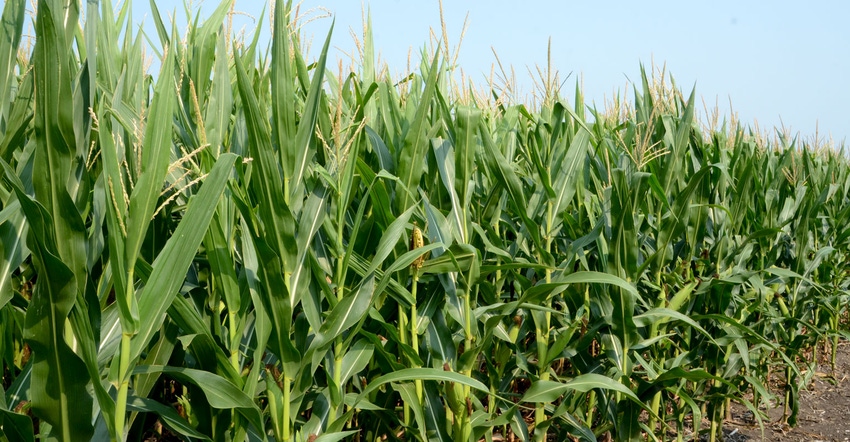September 14, 2021

Tools that help corn better use available nitrogen are getting more attention. Having corn fix its own nitrogen is one tool on the market, but Mike Miille, CEO of Joyn Bio, says his company is targeting an even better approach for farmers.
“We are engineering a microbe that will associate with the corn plant or wheat plant through its life cycle to deliver nitrogen,” Miille says. “With this product, the grower will be able to reliably reduce their input of fertilizer by 40% to 50%.”
He admits the target this startup has set for itself is high: replacing up to half the nitrogen a corn or wheat plant needs through this fixation process. But Miille says another feature that farmers will like is that this solution is designed to be applied as a seed treatment.
The key benefit is reducing the amount of nitrogen going directly to the soil where it can leach or volatilize into the atmosphere. With a fixated nitrogen, the engineered microbes work with the plant to bring in usable nitrogen right from the air. The plant and the microbe grow together, providing season-long N support for the plant.
As for the seed treatment approach? “I think this is critical, when you think about penetration into the corn market,” Miille says. “The corn seed which those growers plant — 80%-plus of it comes from either Bayer, Syngenta or Corteva.”
Miille says Joyn Bio is taking a pharma-industry approach, working to develop this new solution to the commercial specifications of a Bayer or Corteva. However, the final step would be to market the product to the major seed corn companies and not take on distribution itself.
“If you want to have a meaningful impact on corn growers, a meaningful impact on agriculture, the biggest, best and fastest way to do that is to get those two companies — Bayer and Corteva — to put this on as a seed treatment,” he says.
Two key investors in Joyn Bio include Bayer and Gingko Bioworks, but Miille doesn’t see his sell-seed-treatment-to-all approach to be hampered with Bayer in the corporate pedigree. He explains that the current structure for Joyn Bio is a 50-50 joint venture with Bayer.
“They have a significant amount of control,” he explains, but it’s not uncommon today for a company like Bayer to license technology to other companies, as it has with biotech traits, or to sell seed-applied solutions to other seed companies.
Creating a market
Farmers know they not only need nitrogen for their crop, but also must help prevent greenhouse gases. And more attention will be given to being environmentally sensitive around using the product.
“If you can really reduce nitrogen applied to a crop by 40% to 50%, and the application is a seed treatment that the grower can use without changing any processes, that is a benefit,” Miille says.
Today, nitrogen-boosting microbial or chemical products are applied either in-furrow or as a separate foliar application — an added step that Miille says won’t be needed with Joyn Bio’s product.
He says, however, that Joyn Bio has no intention of selling direct to the farmer. “Our whole business strategy is to design products that have performance and specifications that a big ag company will take on and license, and put out there,” he explains.
Miille points to “billions of dollars of commercial infrastructure sitting out there under the heading of Corteva, Syngenta, BASF, Bayer and even FMC. They all have global go-to-market footprints. For a company like Joyn to think they’re going to do better than that [at retail] is crazy.”
But that also means patience. Joyn Bio’s first seed treatment, which has gone through proof of concept showing it works, must now go through broad field testing and a regulatory process. In addition, once a company gets samples to test, it has to grow those plants to see if it works as advertised. “And that can take a couple years for each company,” he points out.
This approach to bringing a new product to market has been a successful model for other companies. For farmers, it will be a few more years before a Joyn Bio seed-applied nitrogen-fixing product comes to market. But if it can cut that fertilizer bill by 40%, it might be worth the wait.
You can learn more at joynbio.com.
About the Author(s)
You May Also Like






